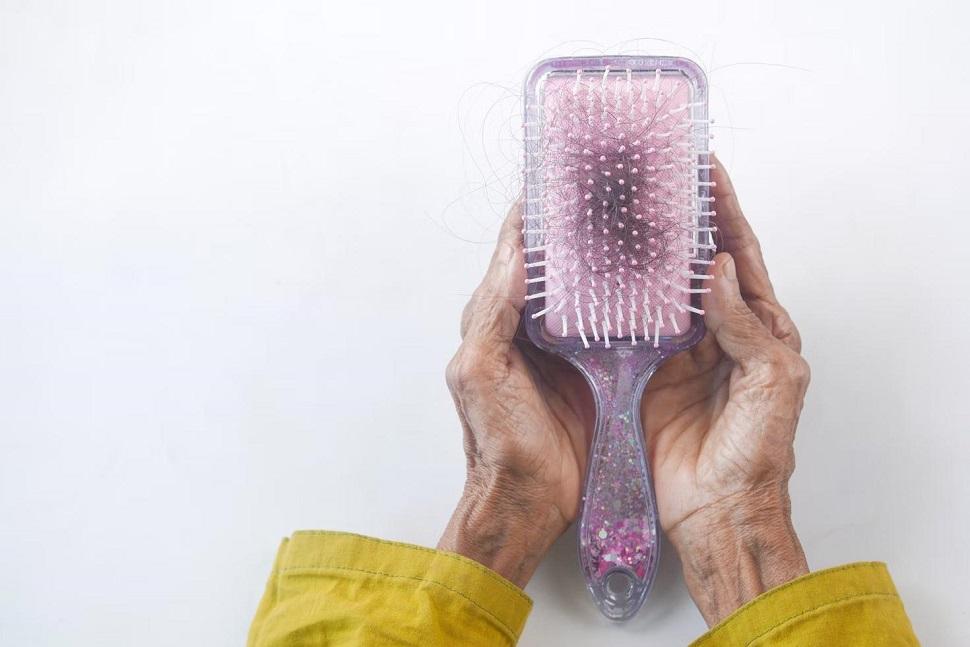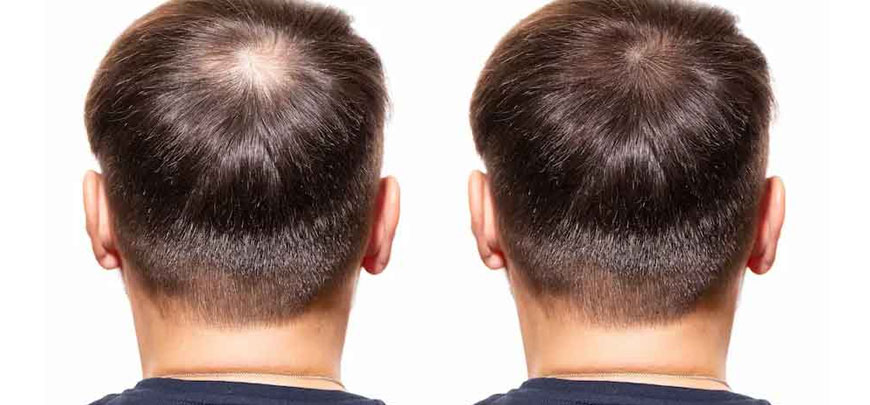Hair loss, a concern affecting millions worldwide, spans various causes—from genetics to environmental factors. The distress it brings goes beyond mere aesthetics, often impacting individuals’ self-esteem and psychological well-being. Fortunately, advancements in medical science and cosmetology have paved the way for numerous treatments aimed at mitigating hair loss, promoting hair regrowth, and enhancing overall hair health.
This blog provides a comprehensive guide to the best treatments available for hair loss, designed to help you navigate your options and make informed decisions for healthier, fuller hair. Whether you’re experiencing early signs of balding or looking for ways to improve hair care routines, understanding the range of treatments can empower you on your journey toward hair regrowth and bolster hair health.
Understanding Hair Loss:

Hair loss is a condition that affects millions of people worldwide, causing not only a visible change in appearance but also impacting self-confidence and well-being. It can result from various factors, including genetics, hormonal changes, medical conditions, and lifestyle choices. Understanding the underlying causes and the types of hair loss is essential for identifying the most effective treatments.
Causes of Hair Loss
Several factors contribute to hair loss, making it a complex issue to address. Genetic predisposition, known as androgenetic alopecia, is one of the most common causes, affecting both men and women. Hormonal changes, such as those occurring during pregnancy, menopause, or thyroid disorders, can also lead to significant hair shedding. Medical conditions, including alopecia areata, scalp infections, and certain skin disorders, might result in patchy hair loss. Furthermore, lifestyle factors like stress, poor nutrition, and harsh hair care practices can exacerbate or even cause hair loss.
Types of Hair Loss
Understanding the types of hair loss is crucial for selecting appropriate treatment options. Androgenetic alopecia, or male and female pattern baldness, leads to a receding hairline and thinning at the crown. Telogen effluvium is a temporary condition often triggered by stress, illness, or significant life changes, resulting in widespread thinning across the scalp. Alopecia areata causes round, smooth patches of hair loss and can affect any hair-bearing area of the body. Traction alopecia is caused by pulling hair too tight in hairstyles, leading to gradual hair loss primarily along the hairline.
Natural Remedies for Hair Loss:
In the quest for hair regrowth and improved hair health, natural remedies have gained popularity for their effectiveness and minimal side effects. Essential oils, scalp massages, and dietary changes are among the most recommended natural treatments for hair loss.
Essential Oils
Essential oils derived from plants have been used for centuries to promote hair health. Rosemary oil, in particular, is celebrated for its ability to improve cellular generation and dilate blood vessels, thereby stimulating hair follicles and encouraging hair growth. Peppermint oil, with its powerful cleansing and stimulating properties, can invigorate the scalp and help alleviate hair loss. Lavender oil, known for its stress-relieving qualities, can also support hair growth by reducing stress, a common contributor to hair loss. Always dilute essential oils with a carrier oil, such as jojoba or coconut, to prevent irritation before applying to the scalp.
Scalp Massages
Scalp massages can promote hair growth by improving blood circulation to the hair follicles. This increased blood flow brings more nutrients and oxygen to the hair roots, strengthening them and encouraging hair growth. Regular scalp massages, whether done manually or with a hand-held scalp massager, can be easily incorporated into your daily routine. Doing so not only benefits hair health but also provides a relaxing and stress-reducing experience.
Dietary Changes
Nutrition plays a pivotal role in hair health; deficiencies in specific vitamins and minerals can lead to hair loss. Incorporating foods rich in vitamins A, C, D, E, zinc, iron, omega-3 fatty acids, and protein can have a profound positive impact on hair growth. For example:
- Vitamin A-rich foods like sweet potatoes, carrots, and spinach help the scalp produce sebum, which keeps hair healthy.
- Omega-3 fatty acids, found in fish like salmon, flaxseeds, and walnuts, can improve hair density.
- Protein, the building block of hair, can be increased by eating lean meats, eggs, and soy products.
Making dietary changes can not only support hair growth but also improve overall health. It’s essential, however, to consult a healthcare professional before making significant changes to your diet or beginning any new health regimen.
In summary, while hair loss can be a distressing condition, understanding its causes and exploring natural remedies can offer hope and potential solutions. From essential oils and scalp massages to dietary adjustments, these treatments can promote hair regrowth and improve hair health, helping individuals regain not only their hair but also their confidence.
Medical Treatments for Hair Loss:
Hair loss, a concern affecting millions globally, can be managed with various medical interventions tailored to its cause and severity. Understanding the most effective treatments is crucial for anyone looking to address hair thinning or balding.
- Topical Treatments
One of the first lines of defense against hair loss includes topical treatments, which are applied directly to the scalp. Minoxidil, sold under various brand names, is among the most well-known. Available over-the-counter, Minoxidil works by prolonging the growth phase of hair follicles, resulting in thicker, longer, and more numerous strands of hair. It’s pivotal for users to understand that consistency is key—the benefits of Minoxidil only persist as long as the product is used regularly.
Another topical treatment gaining popularity is Finasteride, albeit in a foam or liquid formulation for direct application. Like its oral counterpart, topical Finasteride targets the hormonal underpinnings of hair loss, specifically by inhibiting the conversion of testosterone to dihydrotestosterone (DHT), a hormone responsible for hair follicle shrinkage.
- Oral Medications
Oral medications provide another avenue for combating hair loss, with Finasteride being the standout option for its effectiveness in treating male pattern baldness. By reducing DHT levels in the body, Finasteride can slow hair loss and, in some cases, stimulate regrowth. However, patients need to discuss potential side effects with their healthcare provider.
For women, Spironolactone, an androgen blocker, can be prescribed to treat hair loss associated with hormonal imbalances. It works by reducing the production of androgens, hormones that can accelerate hair loss in females and is often suggested for those who haven’t responded well to other treatments.
- Hair Transplant Surgery
For individuals seeking a more permanent solution to balding, hair transplant surgery presents a viable option. The procedure involves removing hair follicles from a part of the head with ample hair and transplanting them to thinning or bald spots. Advances in technology have led to techniques such as Follicular Unit Transplantation (FUT) and Follicular Unit Extraction (FUE), both offering natural-looking results with different approaches to harvesting follicles. While surgery can be costly and invasive, it provides a long-term solution for hair loss.
Lifestyle Changes to Promote Hair Regrowth:

Beyond medical interventions, modifying lifestyle factors can significantly impact hair health and encourage regrowth. These adjustments, while seemingly simple, require consistency and patience to yield visible results.
Stress Management
Chronic stress is a known contributor to hair loss, as it can disrupt hair growth cycles and lead to shedding. Implementing stress-reduction techniques such as yoga, meditation, regular exercise, or even seeking therapy can mitigate stress levels and, consequently, its effects on hair health. Learning to manage stress effectively is not only beneficial for hair regrowth but also for overall well-being.
Diet and Nutrition
Nutritional deficiencies can detrimentally affect hair health, leading to thinning and loss. Ensuring a well-balanced diet rich in vitamins and minerals is essential for supporting hair follicles. Incorporate foods high in vitamins A, C, D, E, zinc, iron, biotin, and omega-3 fatty acids, as these nutrients are known to promote healthy hair growth. In some cases, supplements may be recommended to address specific deficiencies, but it’s advisable to consult with a healthcare provider before starting any new supplement regimen.
Hair Care Routine
A gentle hair care routine can prevent further damage and encourage regrowth. Tips include:
- Avoid harsh chemical treatments and heat styling tools that can weaken hair.
- Using a soft-bristled brush to reduce mechanical stress on hair follicles.
- Selecting mild, nourishing haircare products designed for hair loss or sensitive scalps.
- Keeping hairstyles loose to minimize tension on hair follicles, reducing the risk of traction alopecia.
In conclusion, tackling hair loss effectively involves a multifaceted approach comprising medical treatments and lifestyle adjustments. By addressing the issue from multiple angles—whether through topical applications, oral medications, surgical options, or making significant lifestyle and haircare changes—individuals can increase their chances of halting hair loss and promoting regrowth. Collaboration with healthcare professionals ensures tailored, effective treatment plans, maximizing the potential for positive outcomes.
Conclusion
Hair loss can be a distressing condition, affecting both men and women of various ages. However, the good news is that there are numerous treatments available that can significantly improve the situation. From medical treatments like Minoxidil and Finasteride to natural remedies and lifestyle changes, the options are diverse. It is crucial to consult with a healthcare professional to identify the underlying cause of your hair loss and determine the most appropriate treatment plan. Remember, consistency and patience are key when it comes to seeing results from hair loss treatments. With the right approach, you can achieve noticeable improvements in hair health and regrowth, restoring not just your hair, but also your confidence.
